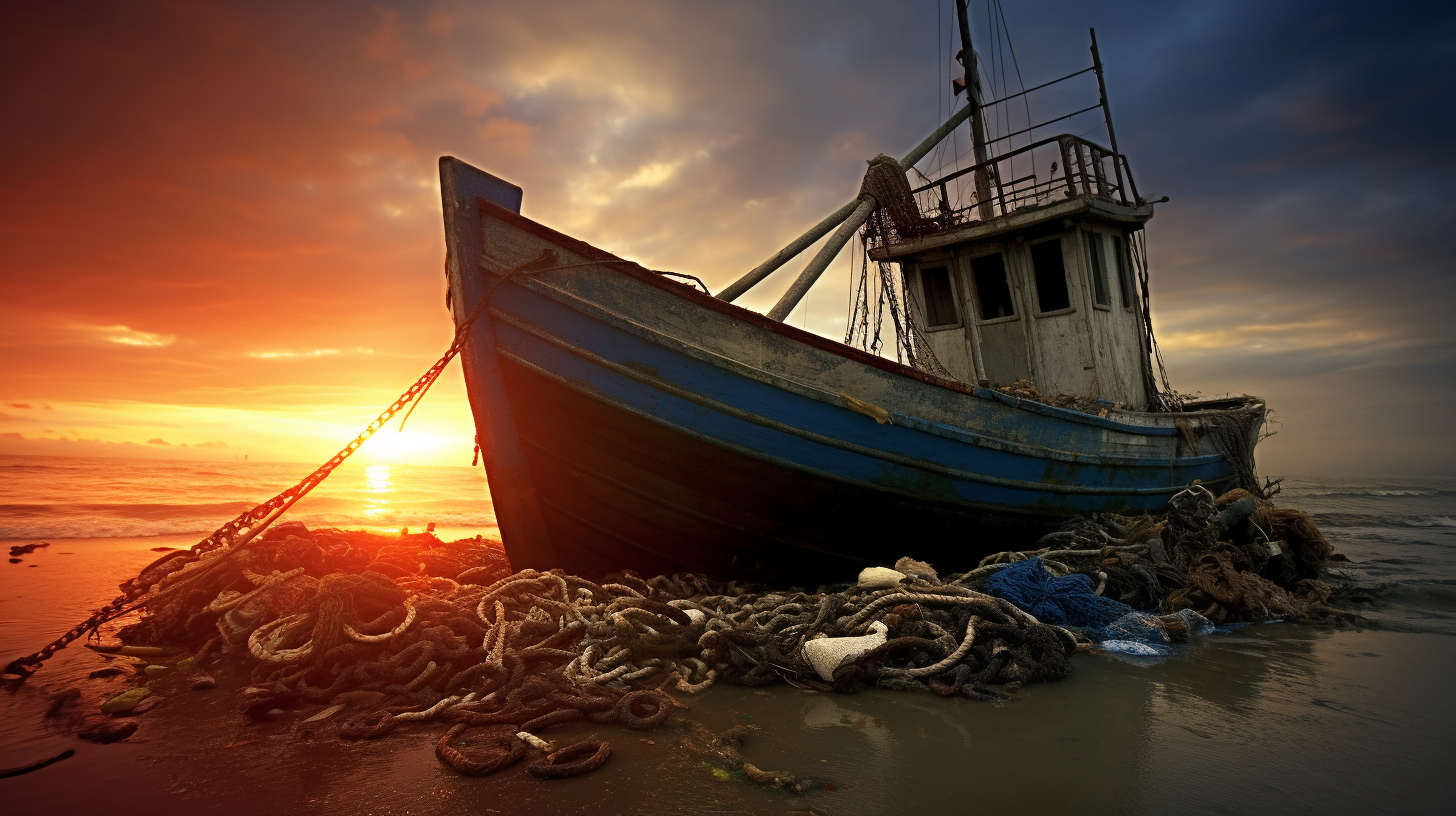Once a harmonious dance between man and nature, the centuries-old art of fishing now languishes in the murky depths of neglect. ‘Forgotten Trawls – The Vanishing Art of Fishing’ takes you through a ripple in time, to an era where the only nets cast at sea were those of fishermen and the oceans teemed with life.
The current state of the seas is a far cry from their bountiful past. We remember the tales of the Carceral Seas, where fishing communities strained against nets weighted by waste, and the Specters of Plastic that turned oceans into crisis zones. The once common morning ritual of the local fisherman hauling in the day’s catch is now nothing more than a haunting echo of an era long gone.
In this age of chilling neglect, fish markets no longer bustle with the same fervor. The catch laid out on ice carries a hidden cost – a cocktail of plastic microfibers and toxic pollutants. Where there was once pride in the daily catch, there is now fear of what invisible dangers it might carry. Conversations have shifted from the size of the catch to whether the seafood is even safe to eat. Fishing, a once lively art, is now a gloomy purveyor of the ocean’s tainted gifts.
As we navigate through the labyrinth of devastating climate effects, we come across communities that still hold on to the fraying threads of their fishing heritage. Old-timers share stories of abundant shoals and crystal-clear waters, their voices tinged with a sorrowful nostalgia for what the seas once provided. The contrast is stark—an ocean teeming with life has been replaced by silent waters.
Critical ecosystems, such as coral reefs and mangroves, have not only provided a nursery for marine life but have also been integral to the socio-economic fabric of the coastal society. Their decline has left a void both beneath the waves and in the lives of those who depended on them. The vanishing art of fishing isn’t just about the dwindling numbers of fish; it’s a tale of broken communities and lost identities.
One haunting question remains: ‘Can this be reversed?’ While our publication paints a grim reality that may seem beyond redemption, the essence of our stories is not to forgo action but to ignite a sense of urgency within our readers. We do not write to inspire hope for these dystopian waters, but to kindle a flame that will illuminate the magnitude of our environmental negligence.
This is especially relevant today, as once-vibrant fishing cultures fade into oblivion. The art may be vanishing, but the lessons remain etched in the sands of time. Let us remember: the ocean is not merely a victim; it is a testament to the consequences of human action—or inaction.
So, as you turn the page on ‘Forgotten Trawls,’ may you carry with you the ponderous reflection that this vanishing art deserves. May it fuel a somber contemplation on how we interact with our remaining ecosystems and the legacy we wish to leave behind.
